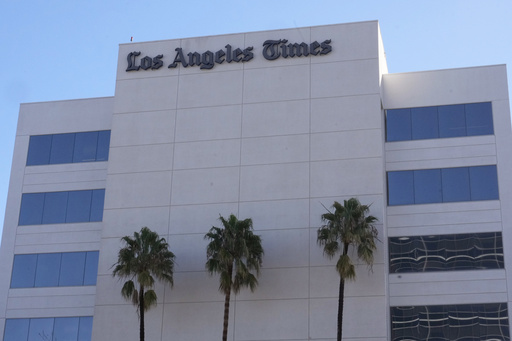
Less than two weeks prior to the upcoming Election Day, The Washington Post announced that it would refrain from endorsing any presidential candidates in the current close race. This choice was condemned by a former executive editor, while the current publisher argued that it aligns with the paper’s longstanding principles. The announcement was released in a front-page article on the publication’s website, which included statements from anonymous insiders suggesting that an endorsement of Kamala Harris over Donald Trump had already been penned but ultimately not made public. According to those sources, the decision not to endorse came from the company’s owner, billionaire Jeff Bezos.
Publisher Will Lewis expressed in a column that this move marked a return to the paper’s previous tradition of abstaining from candidate endorsements, emphasizing faith in the capability of their readers to form their own opinions. He acknowledged that the decision could be interpreted in various ways — some might see it as an indirect endorsement of a particular candidate or as a shirking of responsibility. “We don’t see it that way,” Lewis clarified. “We see it as consistent with the values The Post has always stood for and what we hope for in a leader: character and courage in service to the American ethic, veneration for the rule of law, and respect for human freedom in all its aspects.”
As of yet, there has been no official response from either political campaign regarding the newspaper’s decision.
Lewis recounted the history of the Post in his remarks, noting that the practice of regularly endorsing presidential candidates began in 1976 with their support for Jimmy Carter. The decision to forego endorsements has reportedly unsettled many on the opinion side of the organization, which traditionally operates independently from the news reporting staff — often referred to as a “church-state separation” within journalism.
The Washington Post’s announcement coincided with a similar decision from the Los Angeles Times, which led to the resignation of its editorial page editor along with two other editorial board members. In that case, the Times’ owner, Patrick Soon-Shiong, asserted that he did not interfere with the editorial team’s plans to endorse Harris. Instead, he proposed focusing on a comprehensive discussion of the pros and cons that would allow readers to make their own judgments. “As an owner, I’m on the editorial board, and I shared with our editors that maybe this year we have a column, a page, two pages, if we want, of all the pros and all the cons and let the readers decide,” Soon-Shiong remarked, expressing concern that endorsements would exacerbate national divisions.
In recent years, numerous American newspapers have opted out of editorial endorsements, partially due to declining readership numbers. They aim to avoid giving remaining subscribers reasons to be upset, which could result in cancellation of their subscriptions.
Former executive editor Martin Baron, who served from 2012 to 2021, quickly criticized The Post’s decision on social media, asserting that it empowers Trump to exert further pressure on Bezos and others. “This is cowardice, with democracy as its casualty,” Baron denounced. “Disturbing spinelessness at an institution famed for courage.”
These developments arrive at a precarious moment for the American press, especially newspapers. Many local news outlets are vanishing, and the traditional “legacy media,” including The Post and The New York Times, are grappling with changing reader habits and the commercial impact of the internet. This landscape has transformed the political arena, with candidates increasingly opting for niche platforms such as podcasts over conventional interviews.
Trump has recently revived his criticisms of the media, labelling it “the enemy of the people.” His recent remarks at a rally in Arizona reflected this rhetoric, where he stated, “They’re the enemy of the people. They are,” in front of an enthusiastic crowd. “I’ve been asked not to say that. I don’t want to say it. And someday they’re not going to be the enemy of the people, I hope.”
With the Post’s decision, the discourse is likely to extend beyond the immediate news cycle. This expectation was communicated through a notice from the paper’s letters and community editor, indicating that many readers would likely have strong reactions to Lewis’ column. By mid-afternoon, the piece had generated over 7,000 comments, many critical. One user, touching upon the Post’s tagline, suggested a rebranding: “Time to change your slogan to ‘Democracy dies in broad daylight.’”
